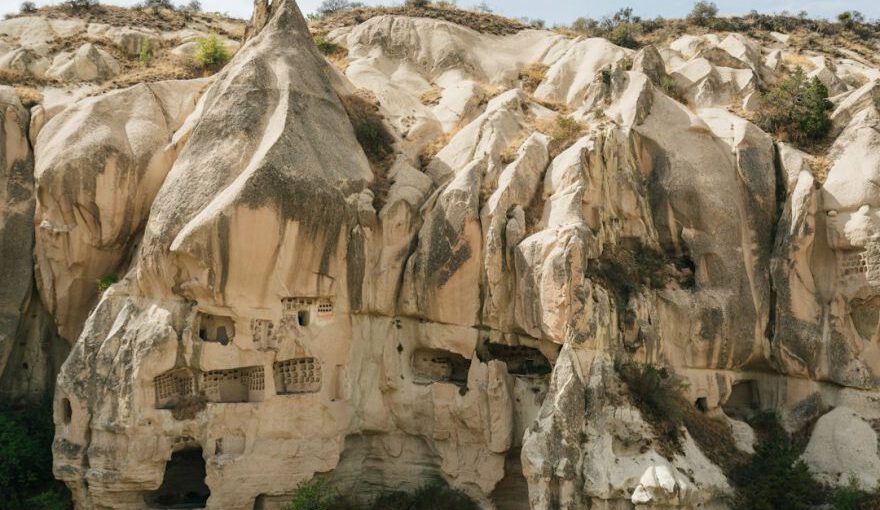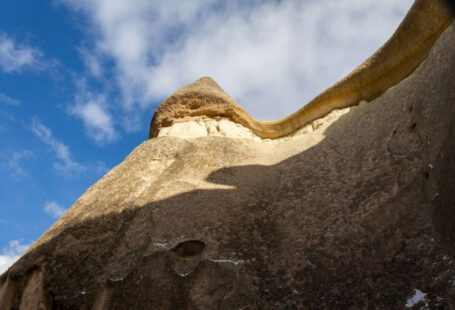Cappadocia is a magical region in Turkey, known for its unique landscapes and rich cultural heritage. One of the highlights of visiting Cappadocia is the opportunity to shop for traditional Turkish textiles. From vibrant carpets to intricately woven kilims, there is something for everyone. In this guide, we will take you through the best places to shop for traditional Turkish textiles in Cappadocia, as well as provide tips on how to make the most of your shopping experience.
Exploring the Local Markets
One of the best ways to immerse yourself in the local culture and find unique textiles is by visiting the local markets in Cappadocia. The Göreme Open Air Market, held every Saturday, is a treasure trove of handmade textiles. Here, you can find everything from colorful rugs to handwoven scarves. The market is bustling with vendors, each offering their own unique selection of textiles. Take your time to browse through the stalls, and don’t be afraid to haggle for a better price.
Visiting Traditional Turkish Textile Workshops
Cappadocia is home to many traditional Turkish textile workshops, where you can witness the art of textile making firsthand. These workshops often have a showroom attached, where you can purchase the textiles directly from the artisans. One such workshop is the Babayan Culture House in Avanos. Here, you can watch the skilled artisans weave intricate patterns on traditional looms and then browse through their collection of textiles. It’s a unique opportunity to not only shop for textiles but also to learn about the craftsmanship behind them.
Exploring the Carpet Shops
If you’re looking for a unique and luxurious souvenir from Cappadocia, consider investing in a traditional Turkish carpet. The region is famous for its handwoven carpets, which are known for their vibrant colors and intricate designs. There are several carpet shops in Cappadocia that specialize in these unique textiles. One such place is the Sultan Carpet in Göreme, which offers a wide selection of carpets of different sizes and patterns. When shopping for a carpet, make sure to ask about the materials used and the weaving techniques employed.
Choosing the Right Textile
When shopping for traditional Turkish textiles in Cappadocia, it’s important to choose the right textile for your needs. Kilims, for example, are flat-woven rugs that are perfect for adding a touch of color and pattern to any room. They are lightweight and easy to transport, making them an ideal souvenir. On the other hand, carpets are thicker and more durable, making them suitable for high-traffic areas. When choosing a textile, consider its intended use and the maintenance required. Some textiles may require professional cleaning, while others can be easily spot cleaned at home.
Making the Most of Your Shopping Experience
To make the most of your shopping experience, it’s important to be prepared. Before visiting Cappadocia, research the different types of traditional Turkish textiles and familiarize yourself with their characteristics. This will help you make an informed decision when purchasing. Additionally, set a budget for yourself and stick to it. While it’s easy to get carried away with the beautiful textiles on offer, having a budget will ensure that you don’t overspend. Finally, don’t forget to enjoy the experience. Shopping for traditional Turkish textiles in Cappadocia is not just about acquiring beautiful souvenirs, but also about immersing yourself in the local culture and supporting local artisans.
In conclusion, shopping for traditional Turkish textiles in Cappadocia is a unique and rewarding experience. Whether you choose to explore the local markets, visit traditional textile workshops, or browse through the carpet shops, you’re sure to find something that captures your heart. By following the tips provided in this guide, you’ll be well-equipped to make the most of your shopping experience and bring home a piece of Cappadocia’s rich cultural heritage. So, grab your wallet and get ready to embark on a textile shopping adventure in this enchanting region of Turkey.





